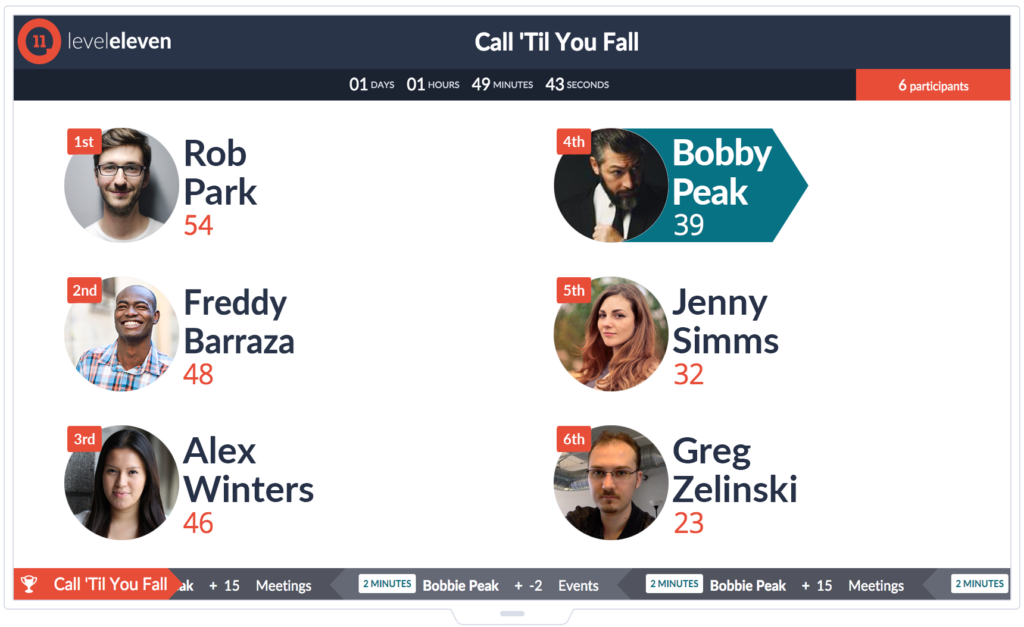According to a 2018 report by InsideSales, sales development representatives (SDRs) ramp time has increased by 5.8% from 2017…
going from an average of 4 months to 4.2 months. Inbound reps have an even harder time, with an average ramp time of 5 months. Although this difference isn’t shocking, it’s a trend that teams want to reverse.
Luckily, this study also uncovered the optimal ramp time: 3 months. Companies that reported a three month ramp time also reported the highest SDR quota attainment (68.5%). Respondents with ramp times longer or shorter than three months reported decreasing average attainment the further from three months they were.
The bottom line? Onboarding practices need to change if organizations wish to keep up with their competition. The earlier a new SDR is ramped, the faster they can begin making meaningful contributions to the team. To help get you (and your new hires) up to speed, we’ve gathered five tips to create an efficient and effective onboarding plan.
-
-
Set Expectations up Front
This is a simple step but, unfortunately, it’s often overlooked. We recommend giving your new rep a training schedule that covers at least their first two weeks. Dedicate their time to learning about your product or solution, your customers, competitors, and role-playing. Having a set agenda and measurable progress points ensures that the rep is on pace with their onboarding plan. It also allows managers to have an accurate idea of how a new SDR is progressing.
Beyond the first two weeks, it can be helpful to give your new hires longer-term onboarding documents as well. Here at LevelEleven, every new hire is given a 30-60-90 day onboarding plan that documents what they should be doing as well as milestone dates for those goals.
-
Create a Library of Resources
 Even when a new SDR is hired, a manager still has a lot on their plate. Because of this, there are limited amounts of time a manager has to spend with a new rep which can slow down onboarding. To combat this, collect a library of the organizations and outside resources for your new hires to refer to and learn from throughout their first few weeks at your organization. This allows a new hire to be proactive and continue learning even when someone isn’t there teaching them.
Even when a new SDR is hired, a manager still has a lot on their plate. Because of this, there are limited amounts of time a manager has to spend with a new rep which can slow down onboarding. To combat this, collect a library of the organizations and outside resources for your new hires to refer to and learn from throughout their first few weeks at your organization. This allows a new hire to be proactive and continue learning even when someone isn’t there teaching them.
Having a new hire wait around while you deal with your daily responsibilities is a sure fire way to slow your onboarding process. Allowing new hires to have ownership over their own onboarding and time makes them more independent in the long run while also using everyone’s time efficiently.
-
Implement Peer Mentoring Programs
Going back to the busy life of a manager, you won’t always have the chance to spend as much time with your new hires as you wish. Don’t let this slow your onboarding process down, use your team wisely! Your seasoned SDRs have first-hand experience and knowledge of the position that will be invaluable to new hires. Studies show that mentorship programs lead to increased salaries, quicker time to promotion, and higher retention rates. Use these programs to the benefit of new and veteran employees.

-
Utilize Performance Management
Set measurable performance goals for your new hire to help them get acclimated to their role. Start small with goals such as 50 dials a week and slowly ramp them up to the team goal of 100 dials a week as they continue through the onboarding process. This gives them meaningful work from day one as well as a goal to work towards. Onboarding periods can get overwhelming and seem to have no end, setting goals and working towards those allow reps to see exactly where they’re at in the process at all times.
Track these goals with a Performance Management System such as LevelEleven to take the manual reporting out of the equation. Use Channel11 to broadcast your contests and trigger splashes when your new hire hits their goals, building their excitement and creating valuable support from the team.

-
Start a Regular Coaching Cadence
Coaching is one of the single most important value building activities a manager can do with their reps. During a new hire’s onboarding time, coaching becomes even more crucial. Research from Xerox found that 87% of new skills are lost within a month of sales training. Without consistency, your coaching sessions and your onboarding plan will fall apart within months of your hire. Do yourself, your new hire, and your organization a favor by putting a regular coaching schedule in place from day one.
-
Although the onboarding process looks a little different for each individual rep, having a process set in place such as the one above helps ensure that every new team member is given the time, attention, and resources he or she needs to succeed in their role. Laying out expectations, leveraging organizational resources, and taking time to coach will go a long way towards reducing your onboarding time and making your team as productive as possible.
Looking for more ways to accelerate your SDR team’s performance? Check out our eBook, “The Complete Sales KPI Strategy Guide for Sales Development Teams” for more tips!
[su_button url=”https://get.leveleleven.com/l/672783/2019-01-07/wd?Latest_Ebook=The-Complete-Sales-KPI-Strategy-Guide-for-Sales-Development-Teams” background=”#e84e38″ size=”5″]Download the eBook![/su_button]



